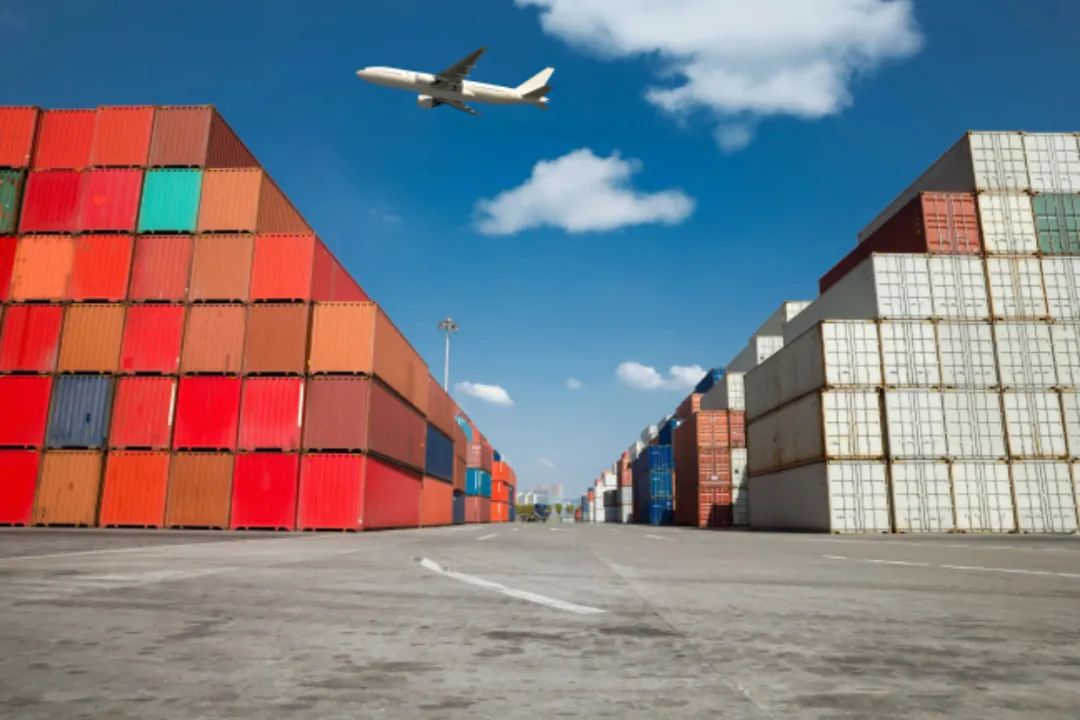Revolutionizing Foreign Trade in 2025: SMEs Find Solutions on Alibaba International Station
![]() 02/17 2025
02/17 2025
![]() 758
758

In the year 2025, the overseas market is poised for unprecedented competition. Chinese entrepreneurs are venturing abroad, eager to export China's business models, entrepreneurial ideas, and strategic methodologies. They remain steadfast in their belief in the "Time Machine Theory," hoping to replicate China's success of two decades ago.
LT has specifically launched the overseas observation column "Overseas Reflector" to document the new journey of Chinese enterprises going global from multiple perspectives. This article, the 48th in the series, focuses on how Alibaba International Station is providing merchants with new overseas routes amidst the current "monumental" changes in foreign trade.
Author | Anyu
Editor | Hu Zhanjia
Operations | Chen Jiahui
Cover Image | Provided by Alibaba International Station
Produced by | LT (ID: LingTai_LT)
As the US government completes its transition, small parcel foreign trade has become the "scapegoat" of political maneuvering.
On February 1, 2025, US President Trump signed an executive order imposing an additional 10% tariff on all goods originating from China (including Hong Kong), effective from February 4, and rescinding the "de minimis" tariff exemption for small shipments valued below $800.
It is worth noting that the "de minimis" tariff exemption clause has been in place since the 1930s. To facilitate goods circulation, in 2016, the US increased the minimum threshold for small duty-free shipments from $200 to $800. This move led to a massive influx of small Chinese parcels into the US market. Data from the US Customs and Border Protection reveals that from 2015 to 2024, the number of small de minimis shipments entering the US market surged from 139 million to 1.36 billion.
Clearly, Trump's executive order will have a significant impact on China's small parcel trade.
However, opportunities always favor the prepared. Trump previously launched a trade war, and although China's exports initially suffered, as merchants proactively adjusted their business strategies, China's foreign trade soon thrived against the odds.
In this new round of trade tensions, Chinese small parcel foreign trade merchants cannot remain passive but must adapt to environmental changes swiftly and find new business opportunities to rise from the ashes. In this endeavor, Alibaba International Station, a seasoned veteran in the foreign trade industry, may emerge as a new overseas route for merchants, leveraging its robust B2B model to help them unlock greater growth potential.
Steady Progress Amidst Great Changes: The B2B Model Becomes a Safe Haven for Foreign Trade
Despite Trump's immediate tariff adjustments upon taking office, this is far from the end. In November 2024, during his campaign for re-election, Trump outlined plans to impose a 60% tariff on China. It can be anticipated that in the coming years, Trump will use tariffs as a "weapon," progressively releasing them to squeeze the living space of Chinese small parcel merchants.
From this perspective, the US's temporary restoration of duty-free status for small parcels is not a complete abandonment of the executive order but rather a tactical move, perhaps due to encountering setbacks that necessitate delaying its full implementation. According to relevant media reports from Tianyancha, Trump's executive order signed on February 7 suspended the execution of the previous order rescinding the duty-free quota "until adequate systems are established to process and collect tariff revenue in a comprehensive and timely manner." Once tariffs can be processed and collected more efficiently, Trump may immediately reinstate the previous executive order.
This implies that Chinese small parcel foreign trade merchants will face immense uncertainty in the future. Should Trump accelerate the rescission of the "de minimis" tariff exemption for small shipments valued below $800, these merchants will find themselves in a dire situation.

Fortunately, the US government has temporarily restored the T86 channel and the minimum duty-free quota. During this interim period, Chinese small parcel foreign trade merchants can certainly continue to operate, but they must prepare for potential challenges and embrace e-commerce platforms capable of withstanding such impacts as soon as possible.
Currently, the rescission of the "de minimis" tariff exemption for small shipments has not significantly impacted models such as B2B, B2B2C, and overseas warehouses. This is because these models involve larger transaction scales and standardized processes, mostly adopting formal customs declaration procedures, which can mitigate the cost pressure caused by increased tariffs through supply chain optimization.
In fact, given the unsustainability of small parcel trade, more and more US merchants are turning to B2B procurement. Data from DigitalCommerce 360 shows that in Q1 2024, US B2B e-commerce sales reached $358.6 billion, a year-on-year increase of 5.8%.
Against this backdrop, B2B trade platforms, represented by Alibaba International Station, have been early movers and achieved remarkable success.
In the volatile foreign trade environment, the growth of Alibaba International Station's core indicators is not solely attributable to its solid B2B model but also to its empowerment of merchants in achieving stable, safe, and compliant overseas operations.
The slogan "Alibaba International Station, Your First Stop for Going Global," displayed during the 2024 European Championships, became the inner monologue of many small and medium-sized enterprises.
Alibaba International Station boasts rapid growth, diverse markets, and ample opportunities. Specifically, it covers more than 190 countries and regions, with over 50 million active global professional buyers and purchasers annually, maintaining steady growth. Emerging foreign trade opportunity markets such as Europe, the Asia-Pacific, the Middle East, and Latin America are also experiencing rapid growth; in the US market, buyers are increasingly turning to the B2B e-commerce procurement model, ensuring stable growth.
According to LT (ID: LingTai_LT), since the beginning of 2025, Alibaba International Station's order volume has surged 50% year-on-year based on the lunar calendar, with all core indicators also growing comprehensively. Thus, under the current circumstances, Alibaba International Station is undoubtedly a trustworthy safe haven for overseas merchants.
Solving Problems for Merchants: Alibaba International Station Becomes the First Choice for Going Global
Unlike operating e-commerce businesses in the Chinese market, foreign trade merchants must confront challenges such as time differences, language barriers, logistics, and customer complaints due to the need to connect with global customers, making daily operations extremely cumbersome.
To help merchants reduce costs and increase efficiency, Alibaba International Station effectively addresses their challenges. The full-process AI foreign trade product business assistant has been integrated with the advanced DeepSeek-R1 model, which will be applied to various core aspects of foreign trade business to better assist merchants in expanding their business increments.
For instance, Alibaba International Station's automatic reception agent can deeply understand buyers' needs and then conduct in-depth reasoning based on market insights, foreign trade experience on Alibaba International Station, and the merchant's product situation to provide high-quality responses.
At the beginning of 2025, OPEC Machinery Co., Ltd. secured a $20 million order in the Middle East through Alibaba International Station's AI business assistant.

▲Picture: Xu Jingqian (second from left) inspecting the market in Saudi Arabia during the Spring Festival
When it was quiet at night, no one was on duty at OPEC. However, at that time, Saudi Arabia, which is five hours behind Beijing time, was still bustling. A Saudi customer inquired about the use of OPEC's equipment and the logistics receiving location on Alibaba International Station. On traditional cross-border e-commerce platforms, OPEC might have missed this customer due to an inability to respond in a timely manner.
Fortunately, Alibaba International Station's AI business assistant can automatically receive customers, inquiring in detail about the buyer's procurement equipment usage, logistics receiving location, and other information, engaging in a five-round dialogue. It even took the initiative to ask the Saudi customer whether this procurement was for regular maintenance, emergency replacement, or a specific project, which are specific questions typically asked during machinery procurement.
Due to the professional reception, the Saudi buyer had no idea that the one conversing with him proficiently was actually Alibaba International Station's AI business assistant.
Subsequently, shortly after the Saudi customer inspected the factory, Alibaba International Station's AI business assistant "actively followed up" and provided the customer with more information. Xu Jingqian, General Manager of OPEC, revealed, "On the same day, the Saudi buyer officially sent us a letter of intent for a $1.96 million order!" After further in-depth communication, the Saudi customer was satisfied and placed a $20 million order.
According to LT (ID: LingTai_LT), Alibaba International Station's AI foreign trade products currently serve 69,000 merchants worldwide, with over 8 million AI-posted products and over 40 million buyer interactions handled by AI. The AI reception of buyers has increased the response rate by 39%.
In addition to leveraging the latest AI technology to help merchants reduce costs and increase efficiency, Alibaba International Station has also launched numerous new solutions tailored to the characteristics of international trade and the needs of merchants, assisting them in more conveniently entering the global market.
LT (ID: LingTai_LT) learned that Alibaba International Station's investment in new markets such as Europe will double in 2025, and it will expand more localized logistics and financial partners locally, expand more logistics routes to Europe, provide more certain logistics guarantees, and integrate more payment tools and methods that conform to the habits of local buyers in Europe.
Moreover, for merchants targeting the US market, Alibaba International Station will also provide free tariff inquiry tools and other tariff solutions, as well as offer "hands-off" semi-managed foreign trade fulfillment services for novice foreign trade sellers, eliminating concerns about tariffs and other issues.
Why Alibaba International Station Broadens the New Landscape of Foreign Trade
As a cross-border trade platform that has been online for over 20 years, Alibaba International Station is not only extremely welcoming to new merchants but also carries the expectations of global cross-border merchants for robust transactions.
This is not only because the B2B trade model focused on by Alibaba International Station has stronger risk resistance and anti-cyclicality but also because it has a vast global influence and robust global trade infrastructure, providing merchants with a solid foundation in the complex and ever-changing global trade environment.
The B2B trade model not only offers Chinese sellers a foreign trade channel for large-volume shipments and high profits but also provides overseas buyers with a convenient procurement channel. In the long run, this model will maintain stable and sustainable growth, serving as a ballast stone for foreign trade.
To further meet the needs of merchants expanding into diverse markets, in 2025, Alibaba International Station will also significantly increase investment in major global markets, with investment in Europe doubling throughout the year to comprehensively and accurately reach core buyer groups in overseas markets.
According to comprehensive information from Tianyancha and other sources, Alibaba International Station is currently experiencing rapid growth in Europe, Latin America, the Middle East, Southeast Asia, and other markets. Among them, Europe is currently the fastest-growing market for Alibaba International Station, with orders increasing by more than 70% year-on-year. In major European countries, Alibaba International Station has entered the top 5 in App downloads, with France ranking third.

Clearly, due to Alibaba International Station's first-class influence in the global cross-border e-commerce field, even if a single market experiences drastic fluctuations due to political reasons, merchants can stabilize their performance through other diverse channels, demonstrating strong resilience.
On the other hand, to further promote the healthy growth of players within the platform, Alibaba International Station is also committed to providing merchants with full-process, one-stop intelligent foreign trade services covering procurement, online transactions, digital marketing, logistics fulfillment, and after-sales support, encompassing all aspects of B2B trade.
Tianjin Yigang Automobile Co., Ltd. has 13 years of domestic trade experience but only one and a half years of foreign trade experience. However, in this short period, it has achieved a scale of $750 million in exports of new energy vehicles through Alibaba International Station and entered emerging markets such as Central Asia, Eastern Europe, the Middle East, Southeast Asia, and Africa.
"The Trump administration wielded the tariff stick high, and there was even a 100% tariff on our new energy vehicle industry. Some developed countries, although not as extreme, may also set up technical barriers to raise our competition threshold in various ways," said Liu Lijie, General Manager of Yigang. "In contrast, emerging countries are different; they are at the starting point and need an economic engine. At this time, our foreign trade just becomes a good medicine to invigorate their market."
In her introduction, she noted that while payment and logistics systems in emerging countries may not be fully developed, Alibaba International Station effectively addresses these challenges. "Our orders are all covered by Alibaba International Station's credit guarantee, providing us with significant reassurance. While in developed nations, resolving payment and credit issues might not be a significant advantage, in emerging markets, it stands out as a major selling point."
Currently, numerous merchants are leveraging Alibaba International Station's supportive policies to unlock new avenues for growth. Notably, as the tax exemption benefits for small parcels diminish, the B2B overseas model is poised to become increasingly vital.
The temporary reinstatement of the duty-free policy in the United States has offered small and medium-sized merchants a crucial adjustment period. Consequently, Alibaba International Station, a prominent platform for B2B overseas trade, has emerged as the merchants' preferred choice.
Postscript
LT (ID: LingTai_LT) believes that despite policy shifts in individual countries, cross-border trade will continue to thrive amidst growing globalization. However, the US repeal of the "de minimis" tariff exemption for small shipments will undoubtedly impact relevant merchants.
This necessitates merchants to adapt their strategies based on the evolving landscape of cross-border e-commerce and select platforms that can withstand such disruptions.
Against this backdrop, Alibaba International Station, with its commitment to the B2B trade model, can be seen as a safe haven for cross-border e-commerce. The B2B overseas model inherently boasts stability, large order sizes, and high profitability. Furthermore, Alibaba International Station is dedicated to enhancing its global footprint and implementing multiple measures to assist merchants. As a result, cross-border trade merchants can not only diversify their channels but also operate with excellence.
Influenced by these changes, cross-border e-commerce platforms, exemplified by Alibaba International Station, will serve as a sturdy stepping stone and a novel overseas pathway for merchants seeking global expansion.







